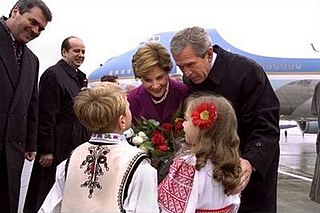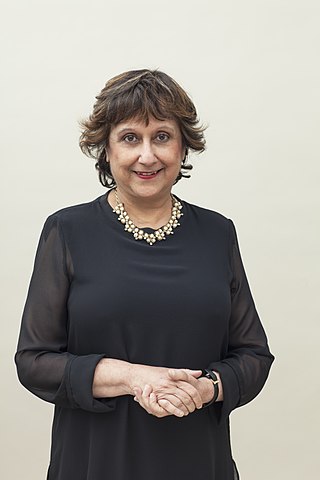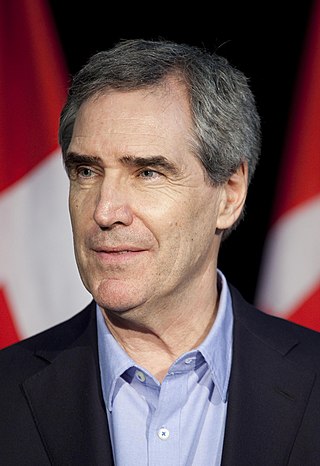
Robert Fisk was an English writer and journalist. He was critical of United States foreign policy in the Middle East, and the Israeli government's treatment of Palestinians.

Bushisms are unconventional statements, phrases, pronunciations, possible Freudian slips, malapropisms, as well as semantic or linguistic errors in the public speaking of former President of the United States George W. Bush. The term Bushism has become part of popular folklore and is the basis of a number of websites and published books. It is often used to caricature the former president. Common characteristics include malapropisms, the creation of neologisms, spoonerisms, stunt words and ungrammatical subject–verb agreement.

The Bush Doctrine refers to multiple interrelated foreign policy principles of the 43rd President of the United States, George W. Bush. These principles include unilateralism, preemptive war, and regime change.

The Arab world, formally the Arab homeland, also known as the Arab nation, the Arabsphere, or the Arab states, refers to a vast group of countries, mainly located in Western Asia and Northern Africa. While the majority of people in Arab world are ethnically Arab, there are also significant populations of other ethnic groups such as Berbers, Kurds, Somalis and Nubians, among other groups. Arabic is used as the lingua franca throughout the Arab world.

The Gulf War was a 1990–1991 armed campaign waged by a 39-country military coalition in response to the Iraqi invasion of Kuwait. Spearheaded by the United States, the coalition's efforts against Iraq were carried out in two key phases: Operation Desert Shield, which marked the military buildup from August 1990 to January 1991; and Operation Desert Storm, which began with the aerial bombing campaign against Iraq on 17 January 1991 and came to a close with the American-led Liberation of Kuwait on 28 February 1991.

Adnan al-Pachachi or Adnan Muzahim Ameen al-Pachachi was a veteran Iraqi and Emirati politician and diplomat. Pachachi was Iraq's Permanent Representative to the United Nations from 1959 to 1965 and Minister of Foreign Affairs of Iraq from 1965 to 1967, during the Six-Day War with Israel; he again served as Permanent Representative to the UN from 1967 to 1969. After 1971, he left Iraq in exile and became an Emirati Minister of State and political advisor to United Arab Emirates president Sheikh Zayed bin Sultan Al Nahyan. Following the 2003 U.S. invasion of Iraq, Pachachi was an important figure in Iraqi politics, often described as Iraq's elder statesman. He rejected the role of president in the Iraqi Interim Government.

William Scott Ritter Jr. is an American author, pundit, former United States Marine Corps intelligence officer, former United Nations Special Commission (UNSCOM) weapons inspector, and a convicted sex offender.

Michael Gwynne Dyer is a British-Canadian military historian, author, professor, journalist, broadcaster, and retired naval officer. Dyer rose to prominence in the 1980s with the release of his television series War in 1983 and the publication of an accompanying book in 1985. Since the 1960s he has lived in London, England, where he works as a syndicated columnist. Dyer is a noted expert in Middle Eastern affairs, having completed his graduate work in this area and written several books on the subject. More recently he has focused on climate change and its geopolitical consequences.

The main event by far shaping the foreign policy of the United States during the presidency of George W. Bush (2001–2009) was the 9/11 terrorist attacks against the United States on September 11, 2001, and the subsequent war on terror. There was massive domestic and international support for destroying the attackers. With UN approval, US and NATO forces quickly invaded the attackers' base in Afghanistan and drove them out and the Taliban government that harbored them. It was the start of a 20-year quagmire that finally ended in failure with the withdrawal of United States troops from Afghanistan.

Yasmin Alibhai-Brown is a British journalist and author. A regular columnist for the i newspaper and the Evening Standard, she is a well-known commentator on immigration, diversity, and multiculturalism issues.

John Ricardo Irfan "Juan" Cole is an American academic and commentator on the modern Middle East and South Asia. He is Richard P. Mitchell Collegiate Professor of History at the University of Michigan. Since 2002, he has written a weblog, Informed Comment (juancole.com).

Robert David Kaplan is an American author. His books are on politics, primarily foreign affairs, and travel. His work over three decades has appeared in The Atlantic, The Washington Post, The New York Times, The New Republic, The National Interest, Foreign Affairs and The Wall Street Journal, among other newspapers and publications.

Michael Grant Ignatieff is a Canadian author, academic and former politician who served as the leader of the Liberal Party of Canada and Leader of the Official Opposition from 2008 until 2011. Known for his work as a historian, Ignatieff has held senior academic posts at the universities of Cambridge, Oxford, Harvard, and Toronto. Most recently, he was rector and President of Central European University; he held this position from 2016 until July 2021.
The article describes the state of race relations and racism in the Middle East. Racism is widely condemned throughout the world, with 174 states parties to the International Convention on the Elimination of All Forms of Racial Discrimination by April 8, 2011. In different countries, the forms that racism takes may be different for historic, cultural, religious, economic or demographic reasons.

Community Peacemaker Teams or CPT is an international organization set up to support teams of peace workers in conflict areas around the world. The organization uses these teams to achieve its aims of lower levels of violence, nonviolent direct action, human rights documentation and nonviolence training in direct action. CPT sums up their work as being "committed to reducing violence by 'getting in the way'".
U.S. Senator Edward M. Kennedy (D-MA) took positions on many political issues throughout his career via his public comments and senatorial voting record. He was broadly liberal with regard to social issues. Kennedy favored stricter gun control, supported LGBT rights and abortion rights, advocated for universal health care, and legislated for education initiatives.

The September 11 attacks were carried out by 19 hijackers of the militant Islamist terrorist organization al-Qaeda. In the 1990s, al-Qaeda leader Osama bin Laden declared a holy war against the United States, and issued two fatāwā in 1996 and 1998. In the 1996 fatwā, he quoted the Sword Verse. In both of these fatāwā, bin Laden sharply criticized the financial contributions of the American government to the Saudi royal family as well as American military intervention in the Arab world.
Racism in the Arab world covers an array of forms of intolerance against non-Arabs and the expat majority of the Arab states of the Persian Gulf coming from South Asian groups as well as Black, European, and Asian groups that are Muslim; non-Arab ethnic minorities such as Armenians, Africans, the Saqaliba, Southeast Asians, Jews, Kurds, and Coptic Christians, Assyrians, Persians, Turks, and other Turkic peoples, and South Asians living in Arab countries of the Middle East.

The keffiyeh or kufiyya, also known in Arabic as a ghutrah (غُترَة), shemagh, or ḥaṭṭah (حَطَّة), is a traditional headdress worn by men from parts of the Middle East.
















